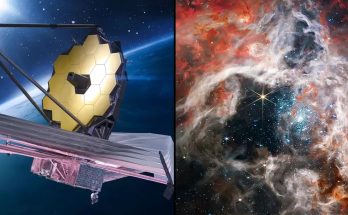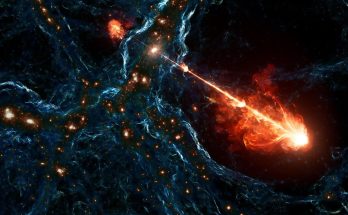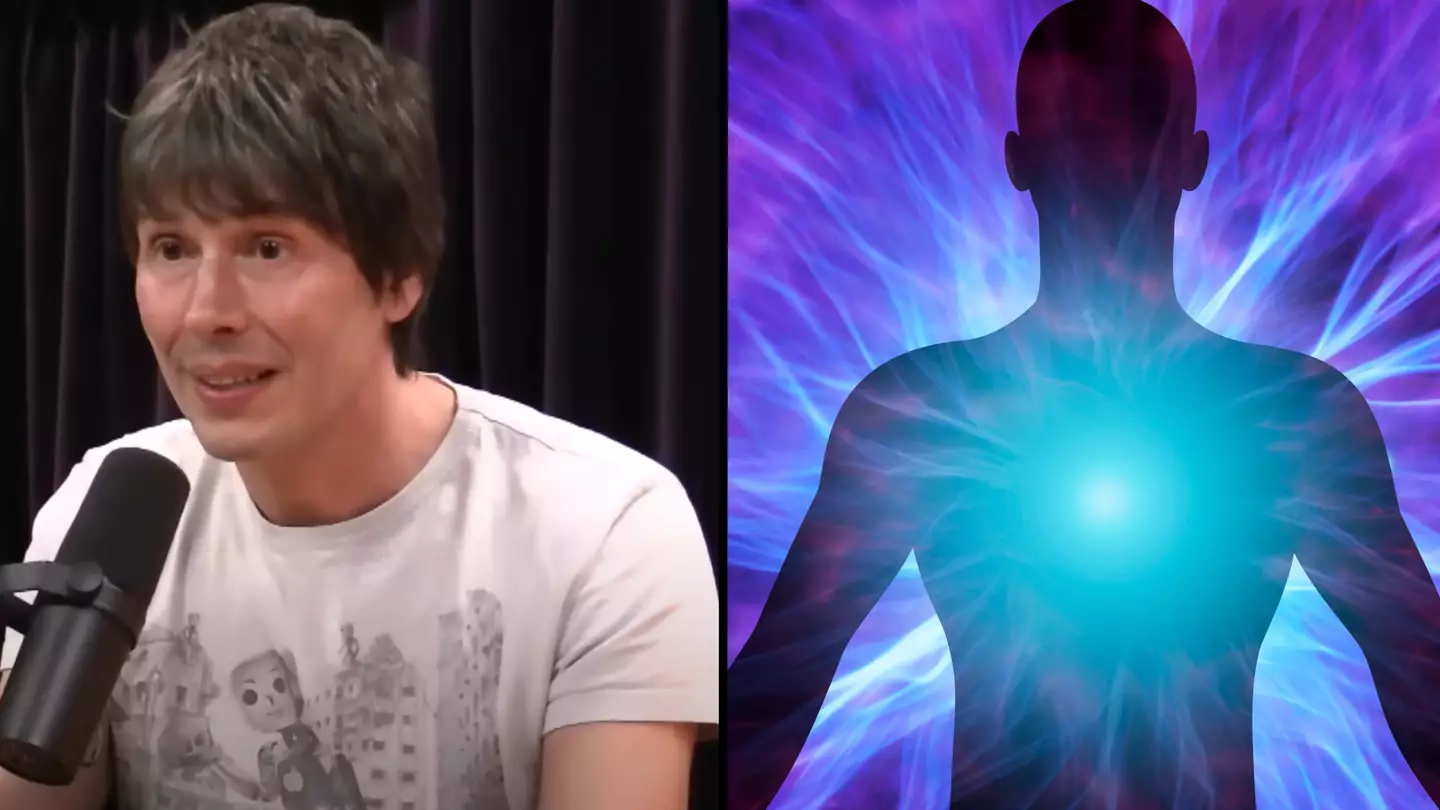
Professor Brian Cox has divided people after ‘ruling out’ a common belief while discussing the possibility of life after death.
The former musician turned physicist is largely known for his views on modern science through his various documentaries and books.
Born in Oldham, the 56-year-old was once the keyboardist for the 1990s rock band D:Ream, known for their hit song ‘Things Can Only Get Better’.

Professor Brian Cox dropped a bombshell in his resurfaced interview on The Joe Rogan Experience (YouTube/The Joe Rogan Experience)
Though after earning a PhD in particle physics from the University of Manchester, he gained global recognition and worked on the ATLAS experiment at CERN’s Large Hadron Collider.
Cox became a household name in the field of physics and was invited to go on The Joe Rogan Experience back in 2019.
During the interview, he dismissed the idea of a soul being trapped inside our bodies and viewers were left stunned
He said: “So, here is my arm. It is made of electrons and protons and neutrons.
“If I have a soul in there, something we don’t understand but it’s a different kind of energy or whatever it is we don’t have in physics at the moment, it interacts with matter because I’m moving my hand around.
.jpg)
Cox says we don’t have a soul (Getty Stock Images)
“So whatever it is, it is something that interacts very strongly with matter.”
The professor explained that scientists have never detected the fifth force of nature, despite having high-precision tools at their disposal.
The four forces we know about are gravity, weak and strong nuclear forces, and electromagnetism.
“If you want to suggest there’s something else that interacts with matter strongly, then I would say that it’s ruled out,” Cox added.
“I would go as far as to say it is ruled out by experiment.
“Or at least it is extremely subtle and you would have to jump through a lot of hoops to come up with a theory of some stuff – that we wouldn’t have seen when we’ve observed how matter interacts – that is present in our bodies.”
Commenting on what he had to say, one viewer thought: “What a mindblowing and touching explanation… we exist in this brief window in temporary complex formed structures to observe the universe…”
A second added: “The meaning of life is just to be alive. It is so plain and so obvious and so simple. And yet, everybody is rushing around in a great panic as if it were necessary to achieve something beyond themselves.”
However, others were not buying it, as a third penned: “I love physics, and love the sciences, but I’m always perplexed and humoured when science thinks it created our existence and forgets the science is merely a tool of observation and therefore is limited only to what it can observe.”
Featured Image Credit: YouTube/The Joe Rogan Experience/Getty Stock Photo
Topics: Celebrity, Scien
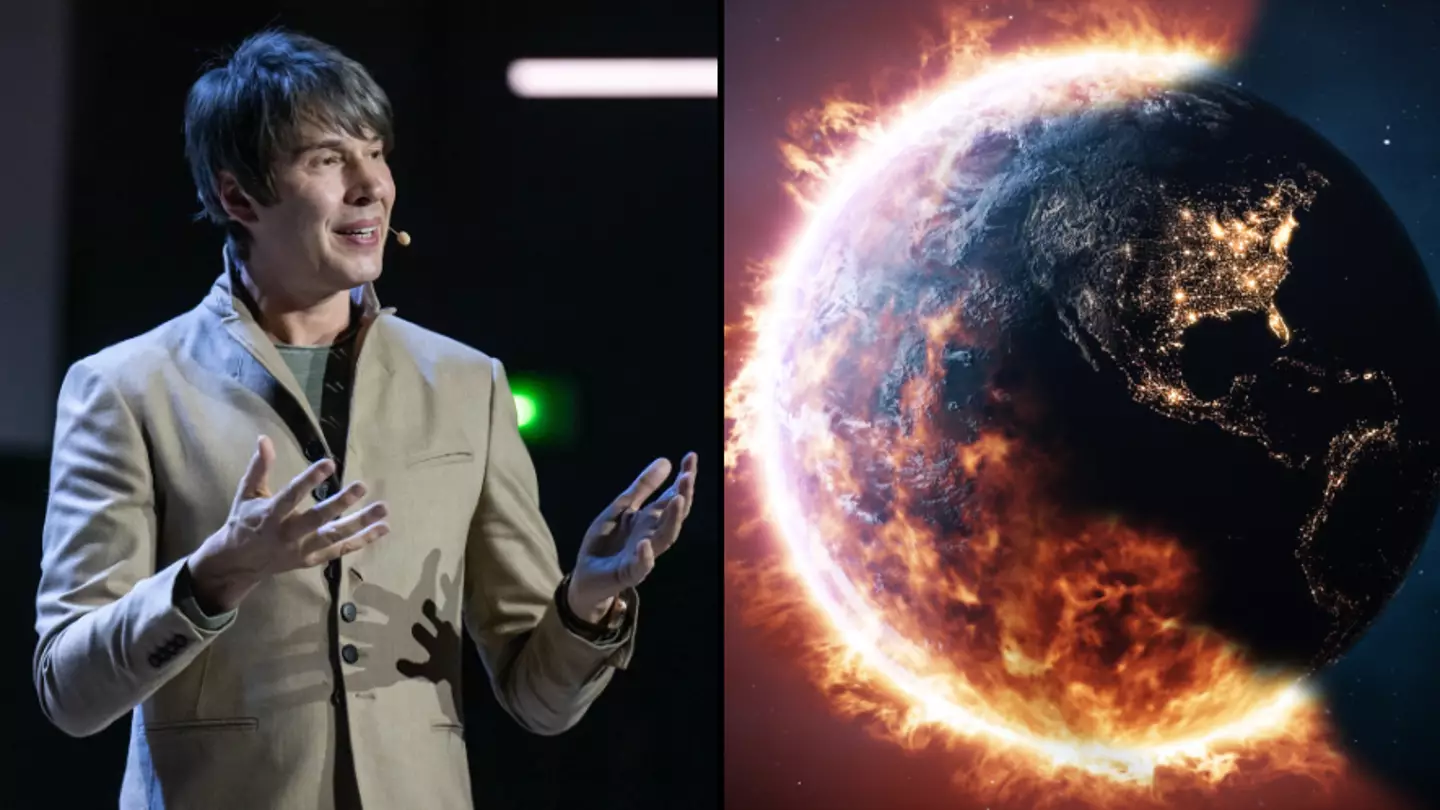
Professor Brian Cox has shared a dark thought on the future of human life.
The British physicist is known for shutting down theories with his pragmatic thinking, putting flat-earthers in their place, while also hinting at the fact that aliens might not exist.
Cox then shared an interesting new theory on X, formerly Twitter, which caused a reaction from a number of his social media followers.
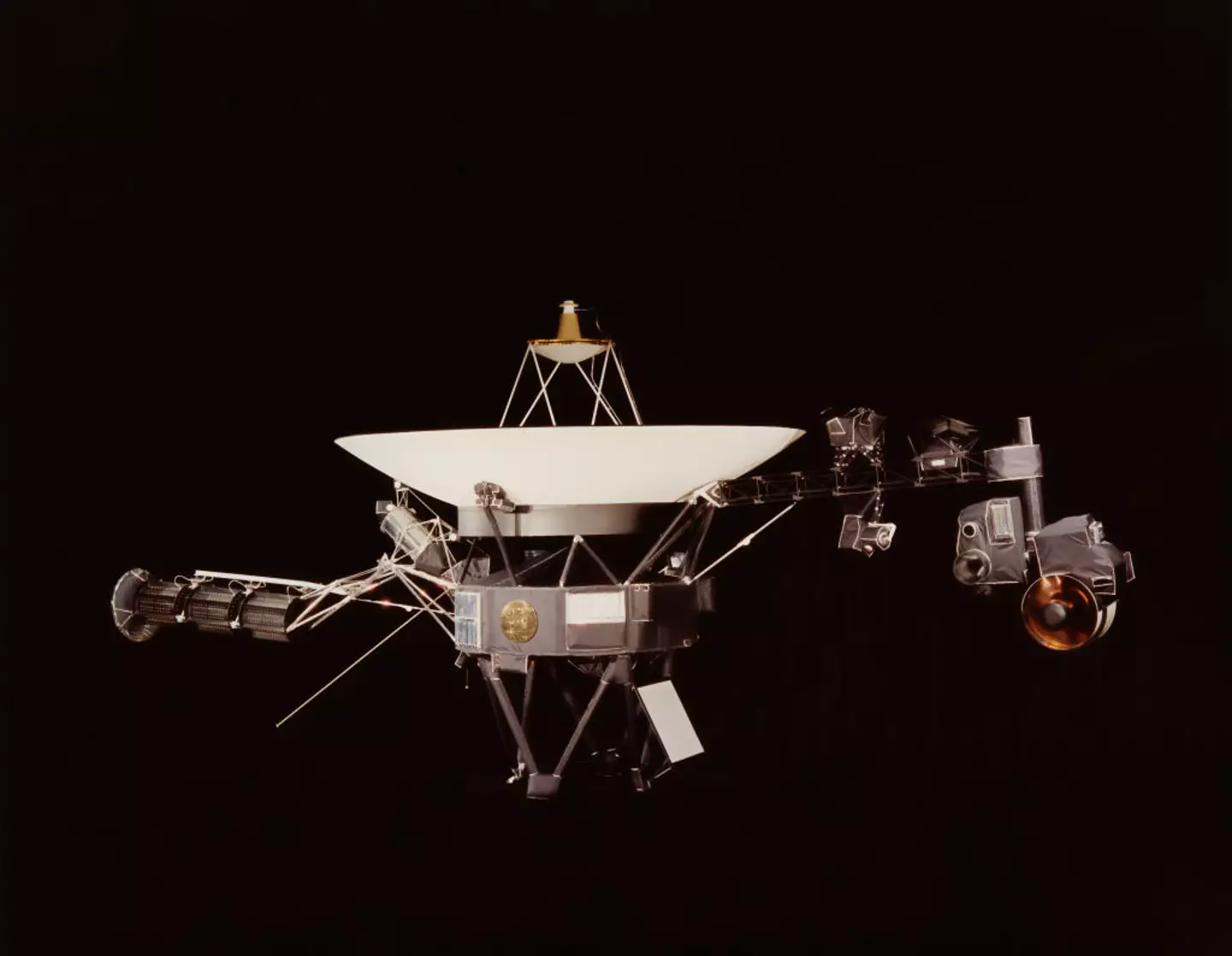
Voyager 1 has been out in space for almost 50 years. (NASA/Hulton Archive/Getty Images)
It all started when NASA announced that Voyager 1, their spacecraft explorer that has been exploring our solar system, and now interstellar space, since the 1970s.
Cox wrote: “It never ceases to amaze me that a spacecraft launched in 1977 can be fixed remotely from Earth.”
Since being launched on 5 September 1977 from Cape Canaveral in Florida, USA, Voyager 1 has become the most distant man-made object in existence, sending back data from interstellar space for almost half a century.
Exploring the likes of Jupiter and Saturn, its most iconic astronomical image is the famous ‘Pale Blue Dot’, showing our planet as a mere spec in the dark, vast vacuum of space – one of the most well-known snaps ever taken.
But in November last year, a glitch in its system made the spacecraft’s data about it’s environment and health of its systems impossible for experts to monitor – but they have finally managed to fix it from Earth.
As spectacular as it is, Cox’s comment on the spacecraft brought on some less-than-intelligent replies from others.

One user wrote: “They switched it off and on again.”
Another put: “Meanwhile, the printer that’s 3 feet from my laptop won’t connect.”
Conspiracy theorists then chimed in, questioning the legitimacy of all this, which prompted a reply from the scientist.
In his classic witty style, the legendary scientist wrote: “Honestly – a few of the replies to this little tribute to engineering excellence exhibit a level of stupidity that suggests to me that it won’t be long before our spacecraft are the only thing that remains of our increasingly dim-witted civilisation.
“Until recently my guess has been that the answer to the Fermi Paradox might be found in biology – complex biological systems are rare. I’m increasingly of the view that the reason for The Great Silence is that civilisations are inevitably crushed by the weight of n**heads shortly after inventing the internet,” he conlcuded.
The Fermi Paradox is the contradiction between the lack of evidence for extra-terrestrial beings in the universe against the high estimates of their probability.
But it looks like Cox is attributing the fact that we’ve had no contact with aliens to the fact that there are thousands, possibly millions of trolls online.
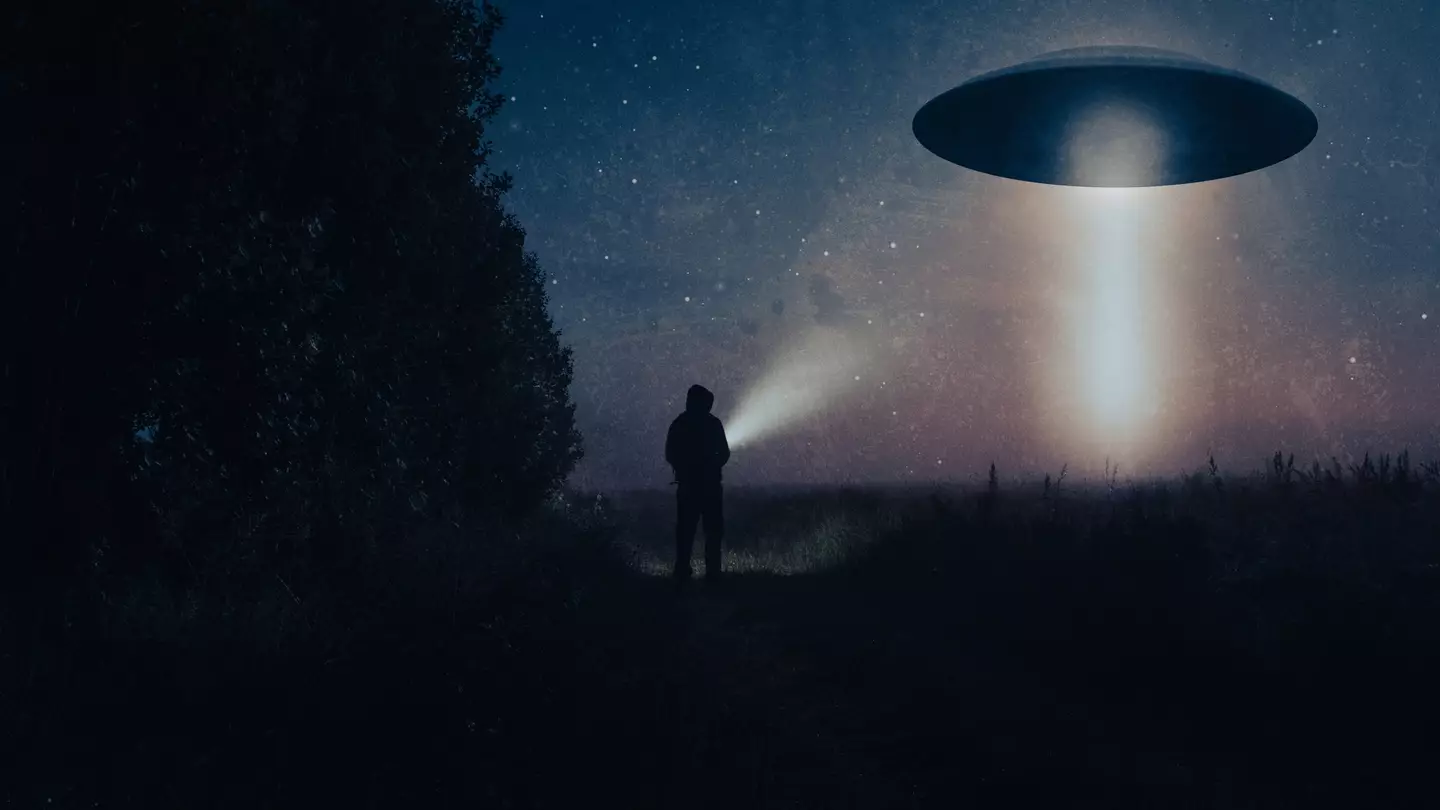
Voyager 1, now 15 billion miles from Earth, and Voyager 2, now 12 billion miles away from Earth, were both launched in 1977, with the mission length being set at five years, though this summer marks 47 years since their launch.
Discovering the likes of volcanoes on Jupiter’s moon and the complexities of Saturn’s rings, Voyager 1 continued on its journey out of the solar system while its sister probe explored the icy planets of Uranus and Neptune.
Both are operated by NASA’s Jet Propulsion Laboratory in Pasadena, California, and both carry a special golden record on board, sharing sounds, pictures and messages of Earth – in case aliens to run into it and want to learn about where the probe came from.
Both are now further away from us and the Sun than Pluto, the dwarf planet in our solar system.
Voyager 1 entered interstellar space in August 2012, with Voyager 2 following up in November 2018, with both still sending important information about their surroundings through the Deep Space Network.
The probes’ current mission is the Voyager Interstellar Mission, which will explore the outermost edge of the Sun’s domain and hopefully, beyond.
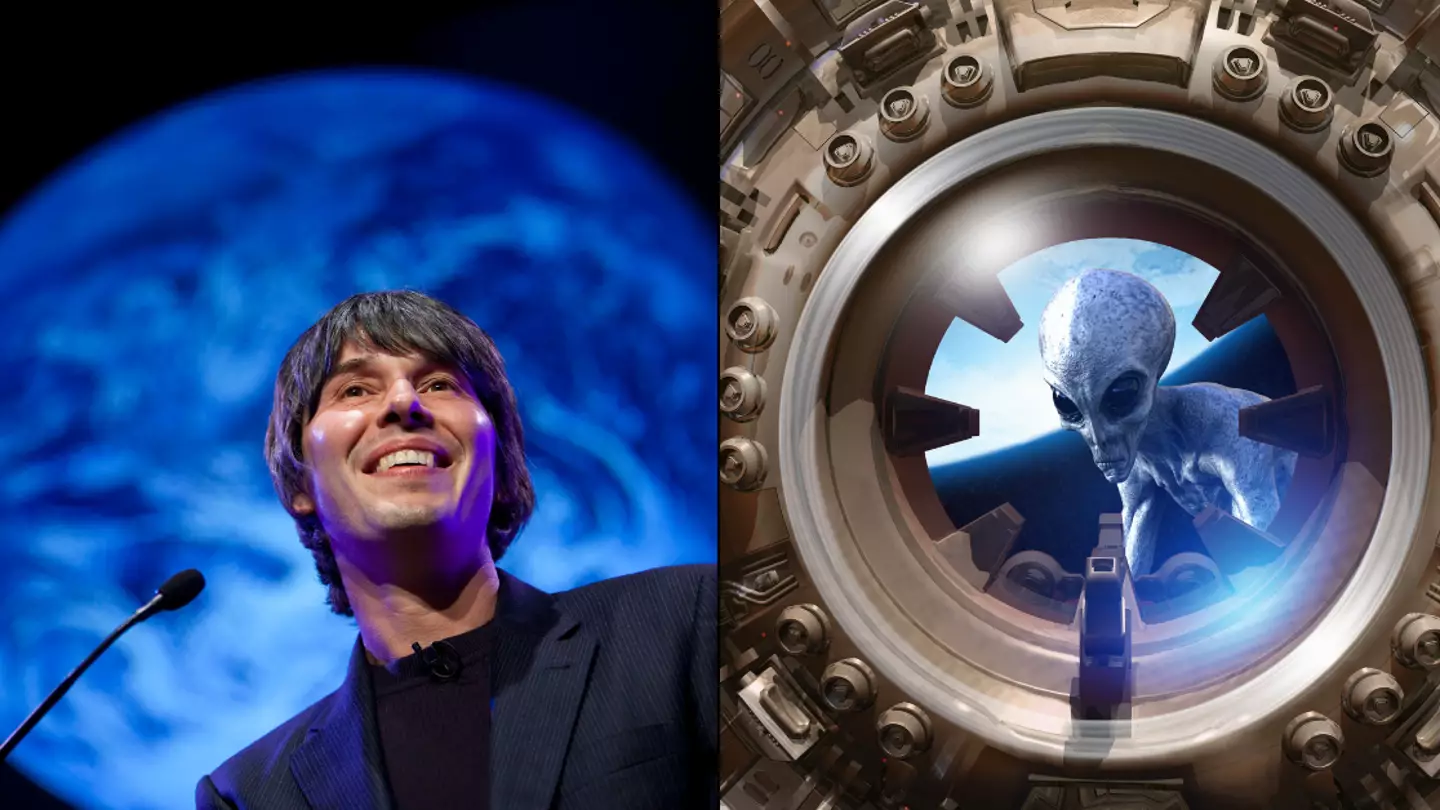
Sometimes people go and gaze up at the stars in wonderment, specifically wondering if aliens are out there and making plans to come and see us.
Either we are alone in the universe or we are not, and both outcomes are pretty terrifying.
However, the idea that aliens could come to Earth and make contact has long held a fascination for our species.
Professor Brian Cox was recently marvelling on social media at how the interstellar probe Voyager could be fixed from all the way back here on Earth.
Sadly, the responses he got on social media led him to wonder if perhaps aliens didn’t make contact as ‘civilisations are inevitably crushed by the weight of nobheads shortly after inventing the internet’.
There are plenty who think that the internet is the greatest communication tool ever devised, and plenty of others who reckon it’s ultimately not been a very good thing for our species in the long run.

There might be a reason why the aliens don’t visit us. (Twitter/@ProfBrianCox)
Advert
For reference, the Fermi Paradox is about the lack of evidence of other life in the universe and the likelihood that extra-terrestrial life exists somewhere.
Essentially, with so many stars and so many planets in the universe, there must surely be some others which can sustain life like Earth? Many of these are older than our own world, which means that if there are alien civilisations out there, they could be far more advanced than we are.
However, while we know that’s the case, the Fermi Paradox poses the rather obvious question: where the hell are all the aliens?
Cox has said in the past that he reckons it’s possible we’re alone in our own galaxy at least, though the question of whether there might be other civilisations elsewhere in the universe is still open.
Advert
He’s also not the only expert who’s got a similar line of thinking about why aliens don’t ever bother to visit us.
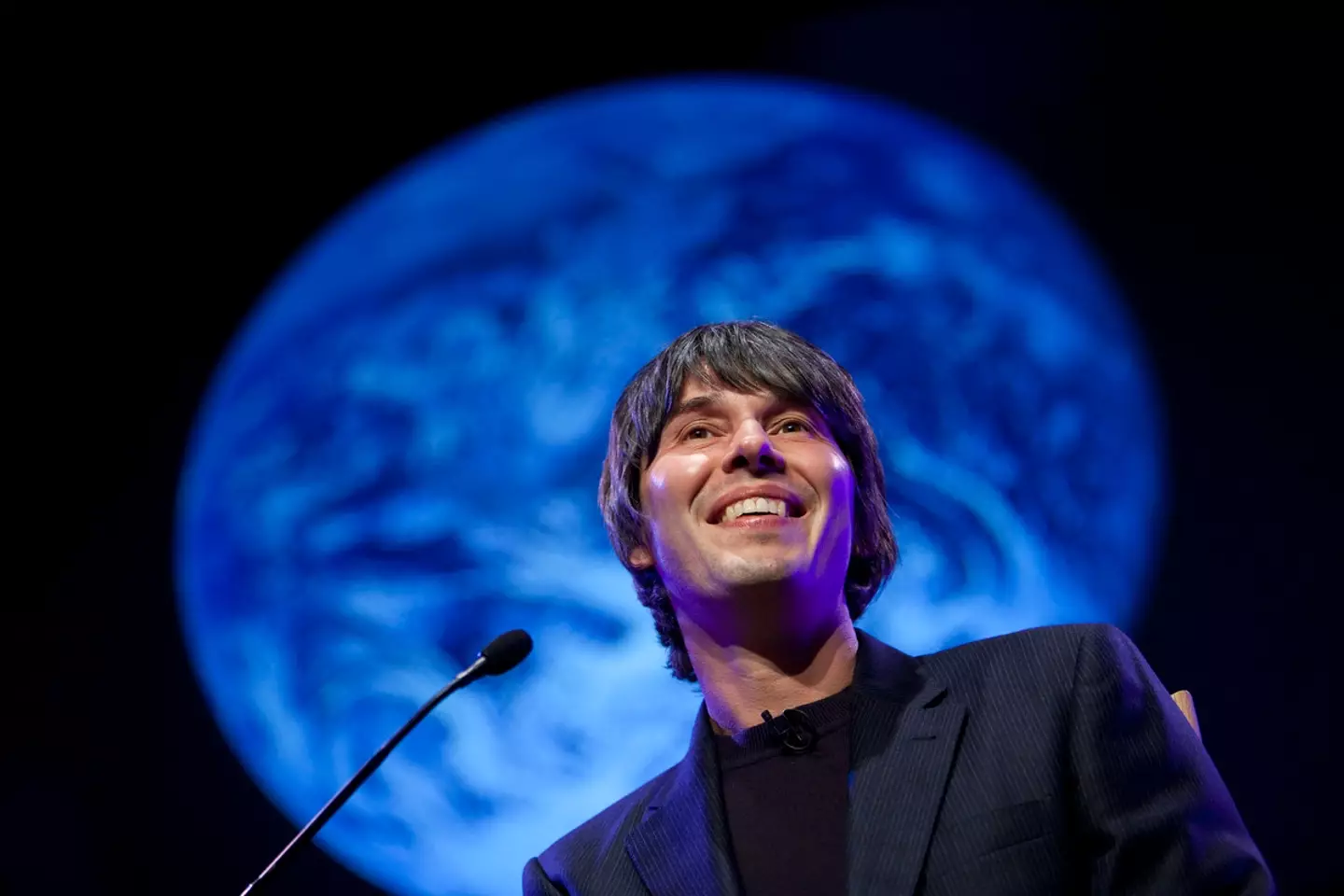
Professor Brian Cox has some idea why we’ve never met any aliens. (David Levenson/Getty Images)
Some brainiacs have theorised that alien life does exist and they could visit us if they so desired, but they reckon we’re a bunch of idiots and not worth interacting with.
That may sound a bit harsh, but if you were an alien and were monitoring what we were up to, would you want to deal with all of our drama?
Thought not.
Then, of course, there’s the more sobering thought that pretty much any civilisation advanced enough to travel to other planets also likely has the capability to destroy themselves.
If we were technologically advanced to visit other solar systems, then we’d also likely have the ability to ruin our entire species (not that we already don’t with nuclear bombs), so it stands to reason that the same would be true of aliens.
It’s a bit of a sad thought isn’t it?
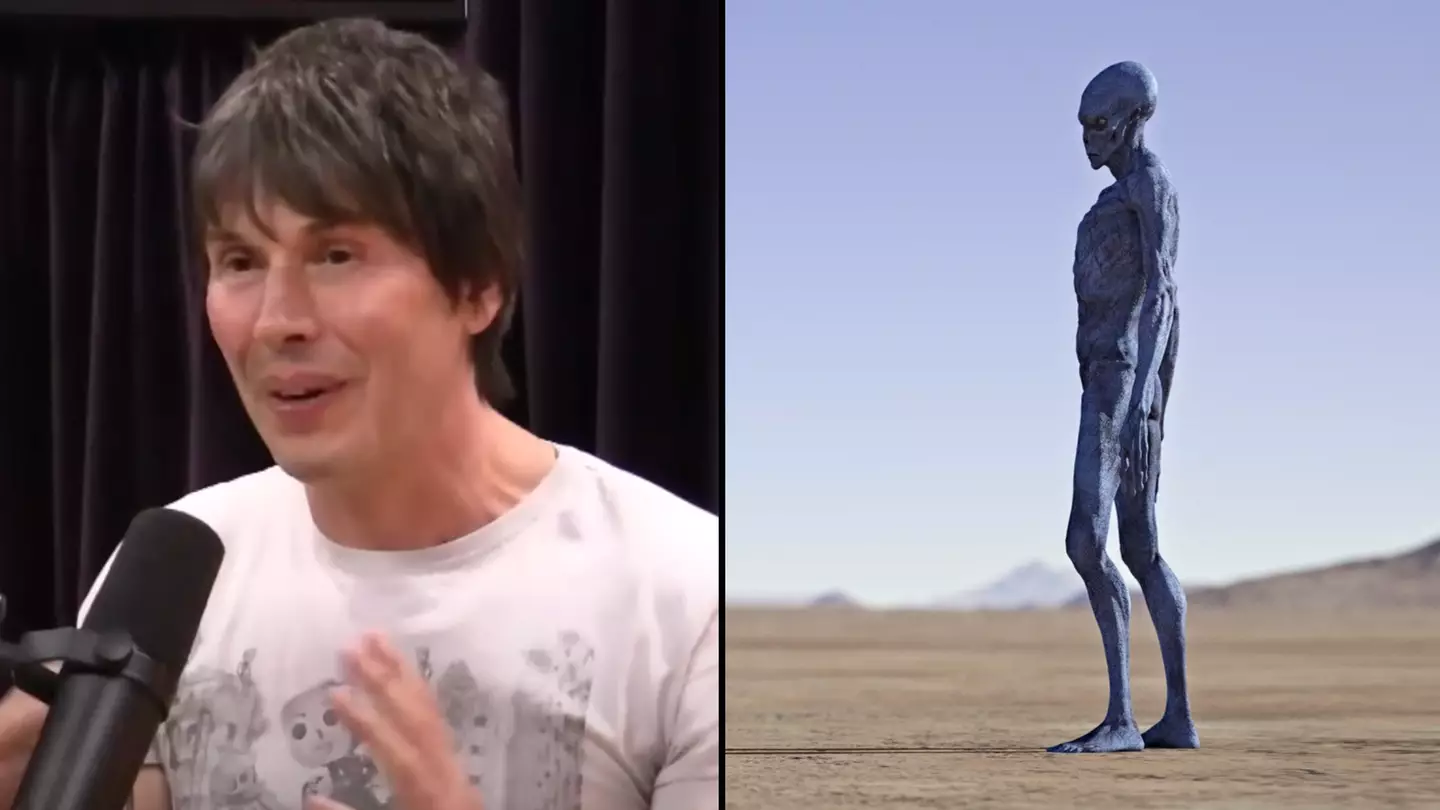
To paraphrase a wise man, either we’re alone in the universe or we aren’t and both possibilities are equally terrifying.
At the moment we haven’t had contact with extra-terrestrial life and there might be some reasons for that.
Some scientists believe that we will one day have our transmissions answered by alien life, but others think that even if there are aliens who could visit us they’d most likely be dead by now.
Basically, any civilisation with the technology to zoom across the galaxy and pop down to Earth for a visit also has the technology to wipe itself out on a catastrophic scale.
But whether they’re on the way or not, Professor Brian Cox seems sceptical about the possibility of aliens even existing.

“Oh damn, I stood right in front of the Earthlings camera. I hope their governments cover up my existence.” (Getty Stock Photo)
He once told The Joe Rogan Experience that he came down into the camp of thinking aliens probably didn’t exist, meaning we’re all alone in our galaxy.
He said: “I tend to restrict myself to the galaxy, as I do think it’s possible that at the moment that there is just one civilisation in the Milky Way, and that’s us.
“And I think that’s important, and this goes back to astronomy and cosmology being the framework for within which you have to think, if you’re looking for meaning or how we should behave even.
“Imagine that we’re the only place where there is intelligence in this galaxy – how should we behave?
“Notwithstanding we’re tiny and fragile things and insignificant physically, should we consider ourselves extremely valuable in that respect? There’s nowhere else where ‘meaning’ exists in the Milky Way.”
Professor Cox went on to explain that the possible existence of aliens wasn’t always discussed, and that there were some philosophical angles to the question.
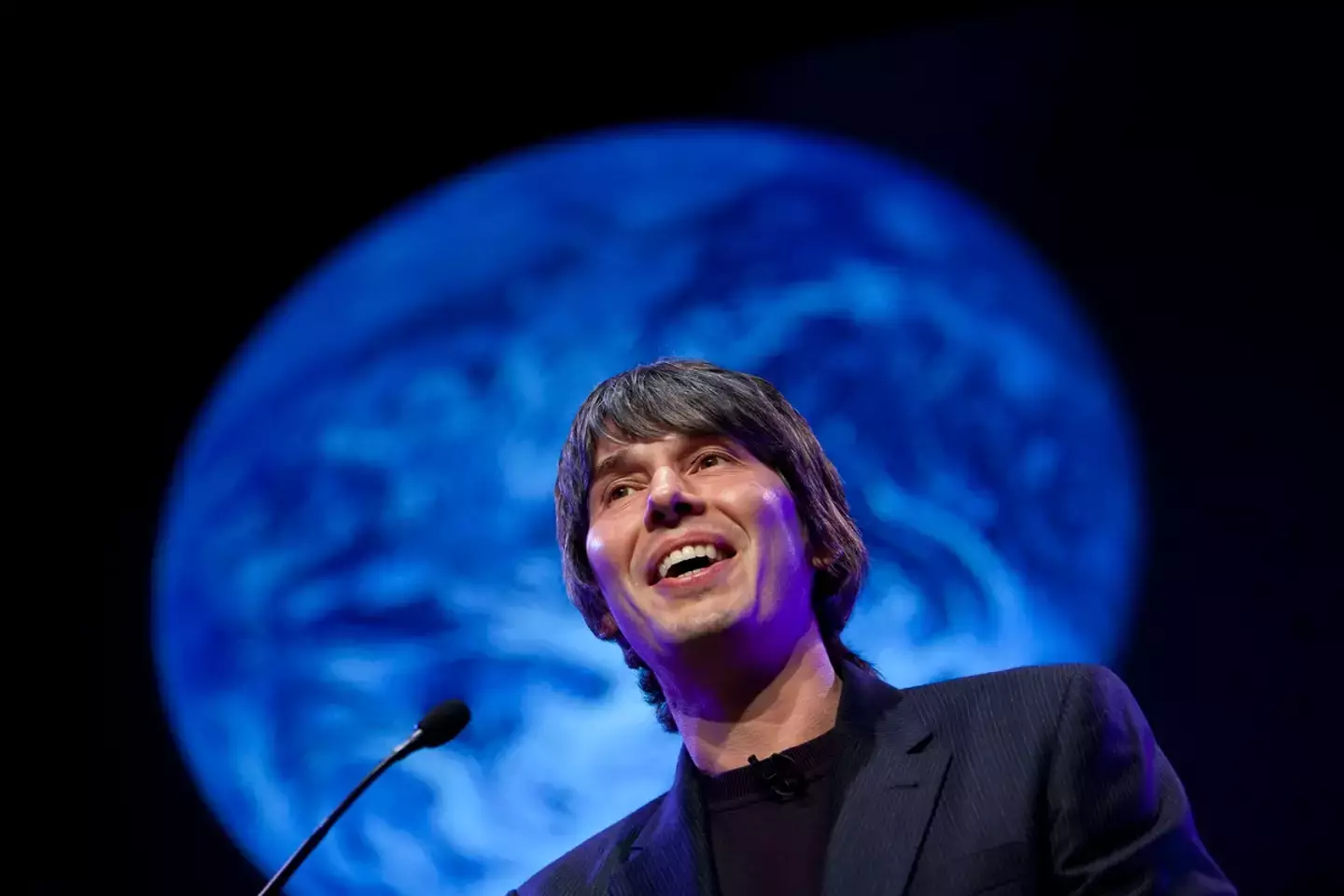
Professor Brian Cox seems to think we’re alone in the universe. (David Levenson/Getty Images)
“It’s one of those things scientists don’t talk about very much, what is self evidently true is that meaning exists here because it means something to us,” he said of the search for aliens being partly a search for ourselves.
“But I think it is a local and temporary phenomenon, I think it emerges from a configuration of atoms, which is what we are, we’re nothing more than that – we’re a very rare configuration of atoms.
“So that means we are the only island of meaning in the galaxy.”
So there you have it folks, aliens possibly aren’t real and we’re all alone on this tiny rock in the vast and infinite emptiness of space.
.png)
To anyone but an astronomer, trying to understand how space works can leave you feeling a little sore-headed.
But Professor Brian Cox is on hand to explain how one of the world’s most advanced pieces of kit helps us ‘travel through time’.
It comes after a huge discovery by the same equipment that could change how we think about the universe.
In one of the more recent updates, the revolutionary piece of equipment has been used to confirm a long-lasting problem in astronomy.
The issue is that the universe has appeared to be expanding at varying speeds, depending on where we choose to look. This is called the Hubble tension, and could potentially upend the world of cosmology for good.
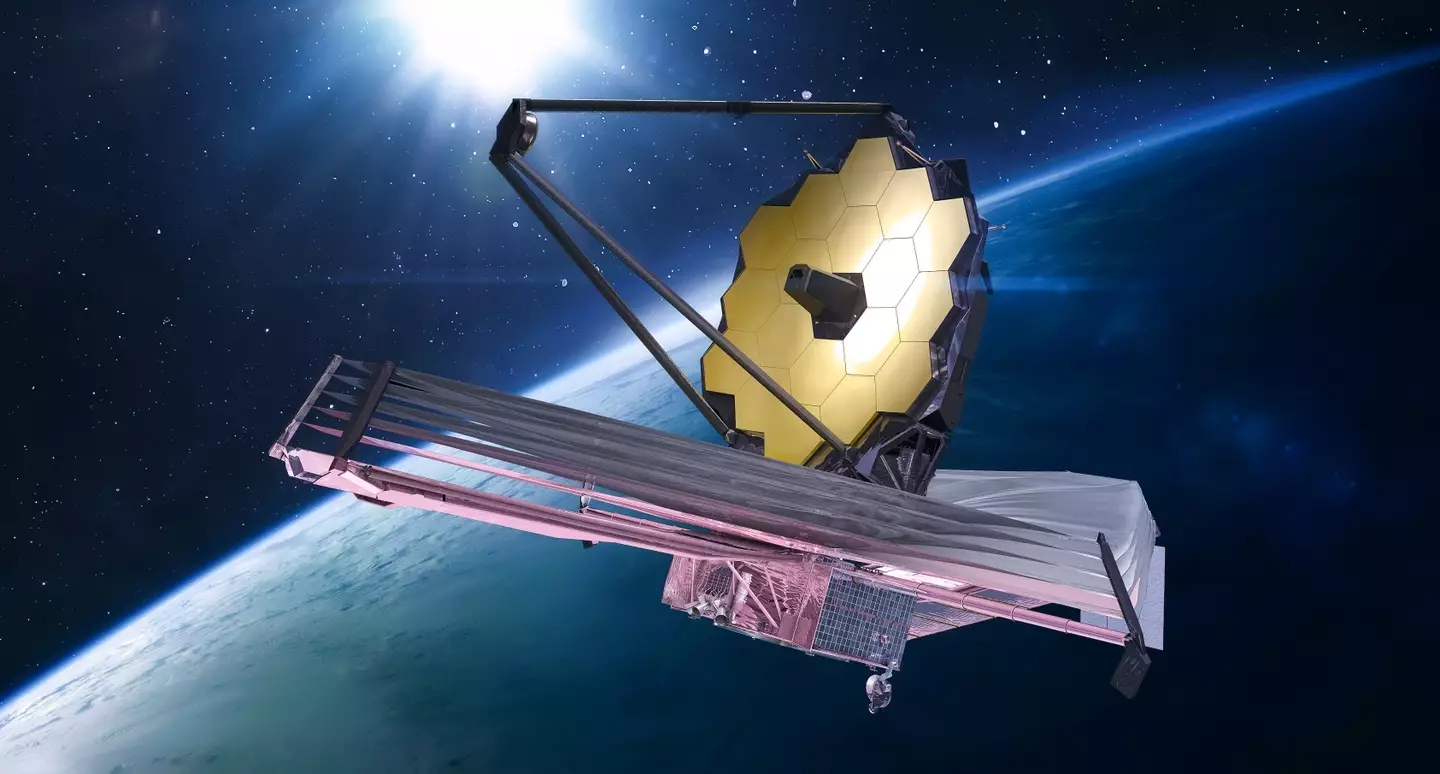
And in 2023, JWST data confirmed the initial measurements carried out by Hubble in 2019, solidifying the theory.
Professor Brian Cox has explained exactly how the JWST and Hubble work, looking out in to deep space.
Light travels really slowly in terms of space, moving at 186,000 miles a second. One way you might have heard this contextualised is that it takes eight minutes for light to get from the Sun to Earth.
So basically, the further out in to space we look, the ‘older’ the light we’re observing through the JWST or Hubble is. In effect, we’re travelling through time to analyse light from billions of years ago.
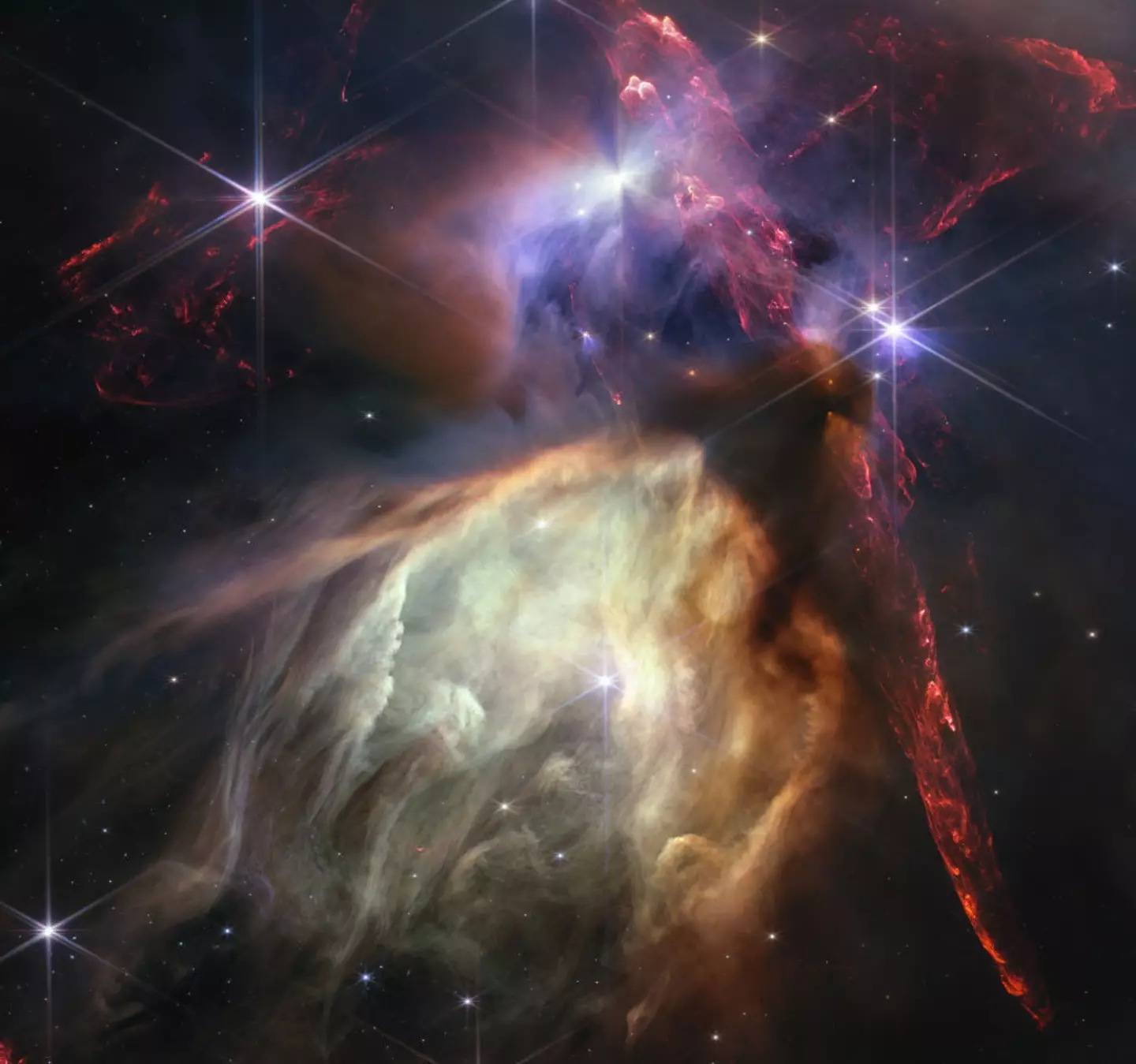
NASA, ESA, CSA, and STScI via Getty Images
Professor Cox said: “The Webb looks so far out that it’s capturing light that’s been travelling for over 13 billion years but the universe has been expanding and so the light has been stretching.
“And so for the most distant galaxies we’re looking back back in time almost to the Big Bang.”
A He added: “The Webb can see the formation of the first galaxies. It’s essentially looking all the way back, very close to the beginning of time. And that’s very important.
“Because we’re not entirely sure exactly how those first galaxies formed.
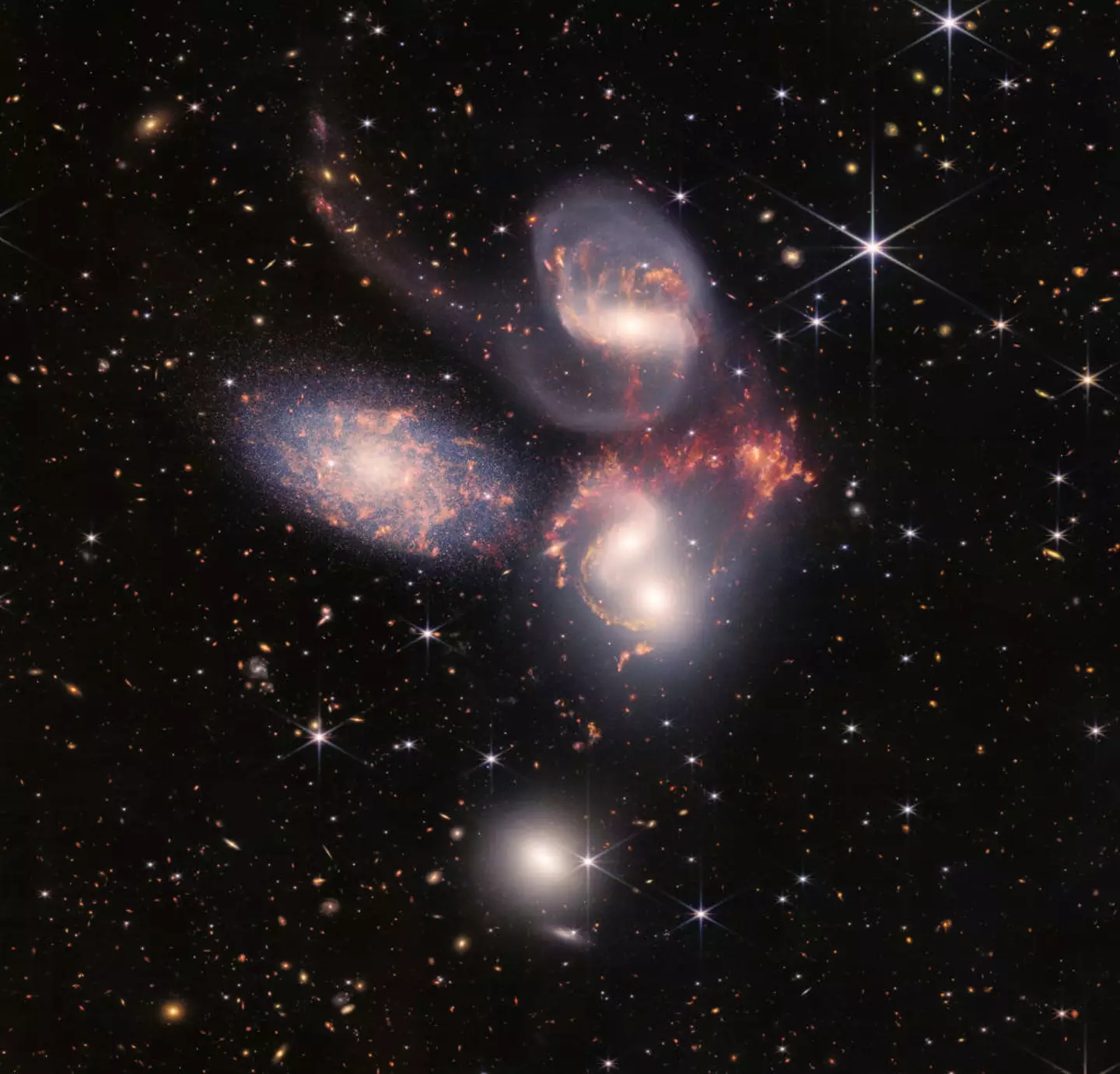
NASA, ESA, CSA, and STScI via Getty Images
“So we can see that. It is microwaves. Because it’s been stretched so much by the expansion of the universe. Going back, the problem with light is that in those earliest times the universe was so hot and so dense that light couldn’t travel through it. It was opaque.
“So you can’t use light to go back earlier than that but what we can potential do – not yet, we’re not good enough yet – but the technology we use now to detect colliding black holes… that technology possible could allow us to probe right back to this thing, the Big Bang.”
